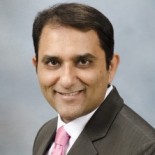Have you noticed a three-year old who isn’t as talkative as other little ones you’ve known? He could have a speech delay.
Speech delay may be the sign of a medical issue. Watch for important milestones.
- 2-3 months: cooing in response to you
- 3-4 months: random babbling
- 5-6 months: babbling in a pattern
- 12 months: starting to say one or two words
- 18 months: saying 10-15 words
- 24 months: saying two-word sentences
If your child isn’t achieving this, it’s a red flag. Early intervention is key to get your child on target.
Things to Check if Milestones Aren’t Met
- Hearing. Is she receiving the signal to process sound?
- Communication. Is it just a speech delay? Is she communicating with facial expressions and emotions?
Speech delay is either a receptive or expressive issue. If he receives and understands everything okay, the expression may come with time. Both kinds should still be addressed.
Speech therapy teaches the skills of getting the child to talk. It’s typically a 30-minute class a few times a week, based on the child’s need. The child and family learn how to get the chatting started, and the family continues the techniques outside of class.
Children with speech delay may have social-emotional issues or development difficulty if the problem isn’t addressed as early as possible. Don’t justify it because a relative spoke late. You want to be sure it’s an isolated speech delay and not another condition.
Screen time and handheld devices don’t teach children how to communicate properly with other humans. Give your child a chance to interact with you to help language development.
Address any missed milestones with your pediatrician. You are the best advocate for your child. Don’t shy away from bringing up developmental questions with your child’s doctor. Get the proper treatment so your child can get up to speed.
Listen as Dr. Naveen Mehrotra joins Melanie Cole, MS, to explain speech delay.
Featuring:
Naveen Mehrotra, MD, FAAP, AAP
 Dr. Naveen Mehrotra
Dr. Naveen Mehrotra is a pediatrician in private practice. Dr. Mehrotra completed his medical training from the State University of New York at Stony Brook and his Pediatric training at the University of Chicago.
Practicing in Central New Jersey with one of the highest concentrations of South Asians, Dr. Mehrotra is dedicated to improving the health of South Asian immigrants. With a lack of awareness in areas such as disease prevention within the community, Dr. Mehrotra helped found the Shri Krishna Nidhi (SKN) Foundation, a community based non-profit organization to address these needs at a grassroots level which has a mission to promote well being through community based education. SKN believes that proper physical health, spiritual, and cultural health all lead to a person’s well-being.
Projects of the SKN Foundation help to further this mission. To help achieve these educational goals, the Foundation also propagates scholarship programs based on merit and need.
Dr. Mehrotra had also been a key person in the founding of the South Asian Total Health Initiative (SATHI), a research and education based initiative at Rutgers Robert Wood Johnson Medical School where he is also a volunteer faculty.

 Dr. Naveen Mehrotra is a pediatrician in private practice. Dr. Mehrotra completed his medical training from the State University of New York at Stony Brook and his Pediatric training at the University of Chicago.
Dr. Naveen Mehrotra is a pediatrician in private practice. Dr. Mehrotra completed his medical training from the State University of New York at Stony Brook and his Pediatric training at the University of Chicago.